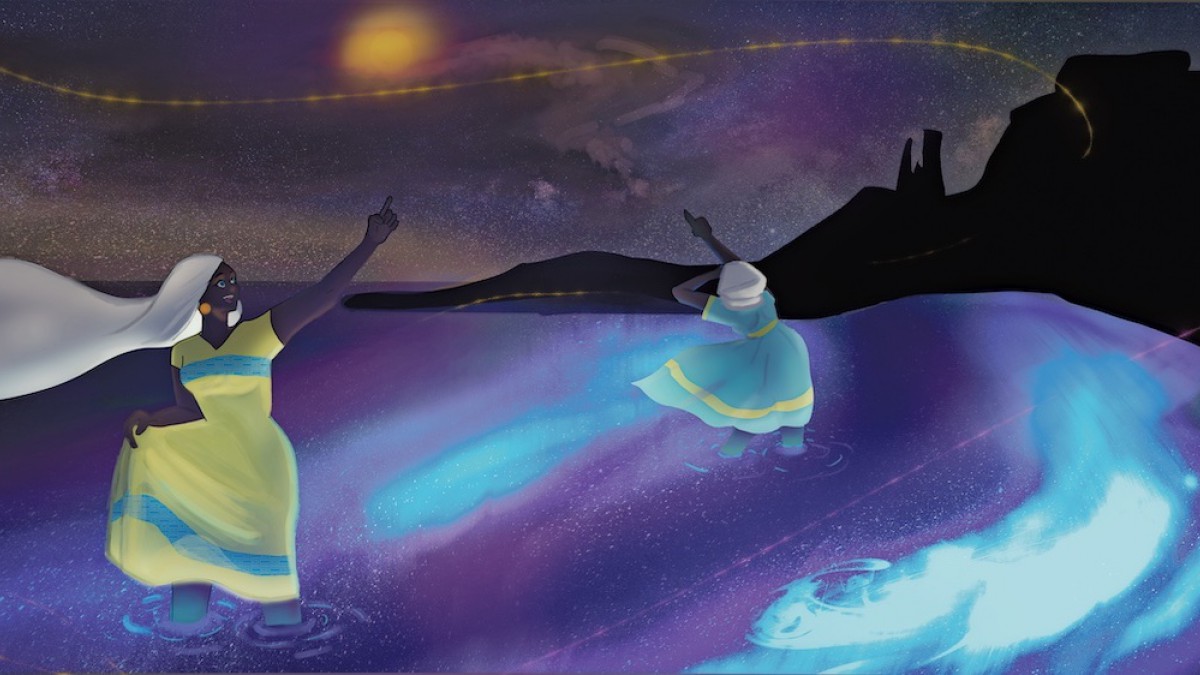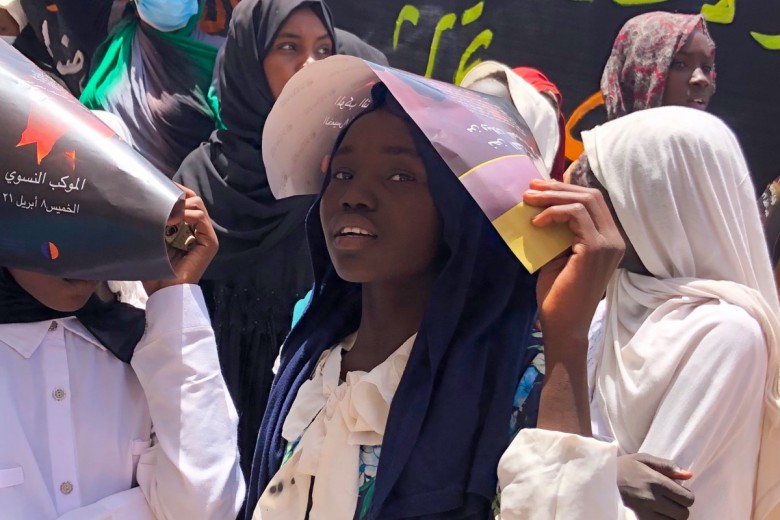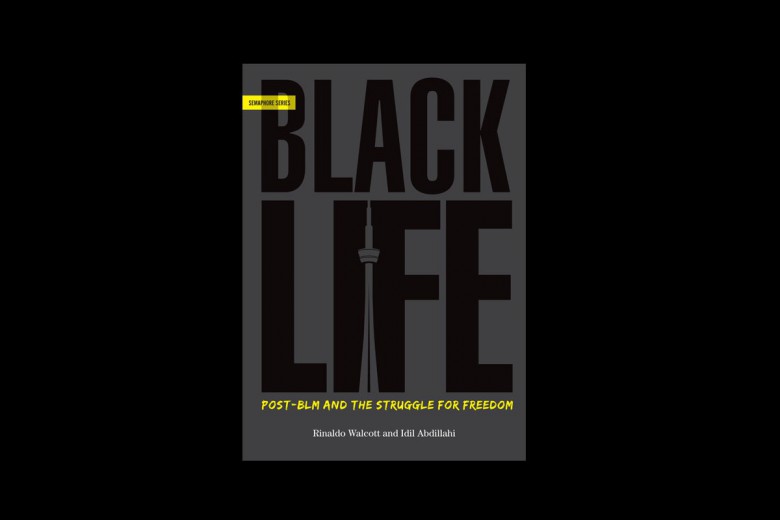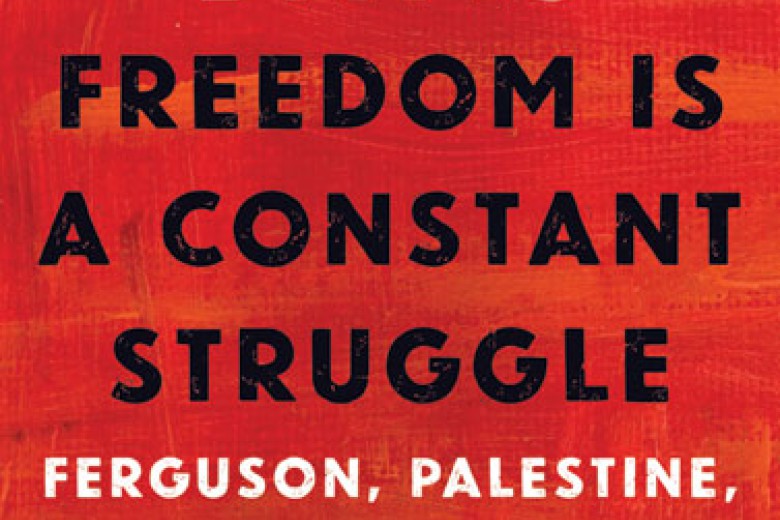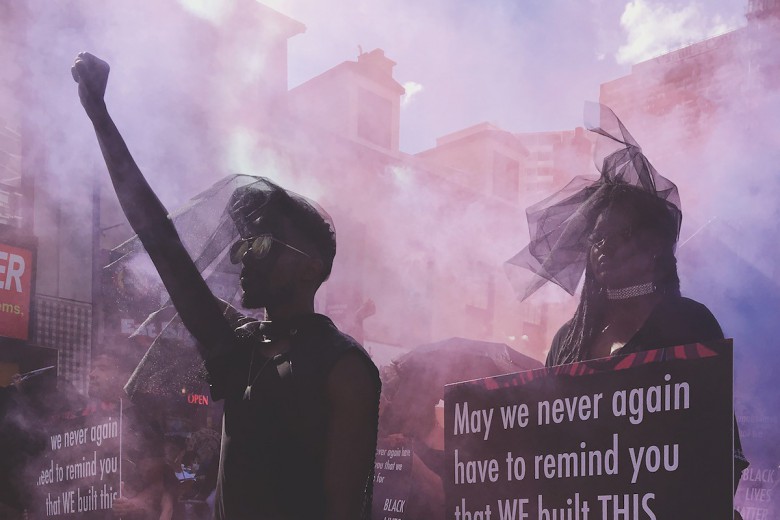Grief isn’t the resulting wound of a singular cut – it’s the reclamation of love in a world spinning on an axis of loss. Perhaps, this is the lesson our bodies teach us every time we decide to avoid feeling this emotion.
Grief for us, as Black individuals, extends far beyond the realm of personal loss. It is rooted in a collective history of survival amid systemic injustices that are deeply entrenched in settler-colonial states. Anti-Blackness shapes our existence, dictating not just moments of visible tragedy, but also the silent, ongoing erosion of our potential. This grief is multifaceted, manifesting not only in the sorrow for what is lost but also in the mourning of what could never be due to the oppressive structures of racism and white supremacy. It’s a grief that is incomprehensible to those who have not lived it, as it encompasses both the acute pain of explicit tragedies and the ache of systemic disenfranchisement. Our conversation, therefore, is not just an exchange of personal experiences; it’s a part of a long-standing tradition of communal grieving within Black communities. It is a radical act in itself, for in a society where our emotions are often overlooked or dismissed, finding space to openly express and share our grief is a form of resistance. We sit together, grieve together, and in doing so, we challenge the narrative that expects us to endure silently. This dialogue is a testament to our resilience and a refusal to accept the narrow confines of grief dictated by a society that rarely acknowledges the full spectrum of our experiences. It’s an invitation to understand, if only partially, the profound depth of Black grief – a grief that is as much about collective loss as it is about personal sorrow.
Black radicals in the 60s and 70s turned the state-sanctioned murders of Black Panther Party members into chances for political action. Organizers did the same after George Floyd was murdered in 2020.
Black grief is ever present, pushing us forward and anchoring our movements and our livelihoods. In this conversation, we explore our individual and collective relationships with grief, identity, and activism. These words may activate or unearth unexpected emotions. As three friends and comrades based in Kitchener, we share an interiority of Blackness and speak to the power and necessity of grief as a galvanizing force for our movements. We offer this conversation as a counternarrative to oppressive, colonialist notions of grief.
Fitsum: My first memory of a death in the family was when I was eight or nine. It was my uncle on my mom’s side; he died in Ethiopia of some heart condition. I’d never met him, though I was old enough to realize that there was a lot of sadness around me, and that I should be sad too. My house was overflowing with people and everyone was weeping, and I was just carrying food around and tea. I kept trying to make myself cry because I felt like I was supposed to. I was like, everyone here is crying, why am I not feeling sad? And then, suddenly, people started singing, laughing, and then before I knew it, I was crying.
Now, I find myself interested in burial and death practices, and learning more about the actual politics of it all. There are certain places where you can’t bury people, and entire plots of land that are marked for burying families, generations of families and I don’t have that. I don’t have this ancestral land where I get to bury my parents, my grandparents, my children, their kids. To think through these types of things and question them is a type of resistance.
Grief isn’t the resulting wound of a singular cut – it’s the reclamation of love in a world spinning on an axis of loss.
Teneile: You’ve made me think about burial practices in a Jamaican context and funerals. Jamaicans aren’t known for delivering news of death softly. The language is direct, not insensitive just direct. Then there is the work of celebrating life. There is music, dance, food, and people. Sounds a bit like what you described, Fitsum. I first experienced this when my great-aunt died. I didn’t know her well, but I cried uncontrollably in the church. I remember the stories I heard of her in passing through the crowds of people. Like, in her death, I met her at different stages of life. We also have rituals about ensuring that the spirit doesn’t follow you home. We understand the barrier between the living and the dead. We don’t play with death. So, there’s a separation, there’s a joyful separation of the act of death. And the forward movement of life.
Lena: I’ve been embracing the mess of grief watching the genocide of Indigenous Palestinians unfold in front of the world. It’s been an emotionally difficult couple of months. In one day I can go from feeling joy to anger, rage, grief, and depression, and then the next day, I start the whole cycle over again. It’s part of the grieving process. It’s not linear; it ebbs and flows and sometimes it feels like this massive wave and you can’t breathe and it sits on your chest.
Grief is a catalyst that provides the space for us to say: this must change.
My mother’s side of the family is from a village in Palestine called Zikreen, which is mainly home to Palestinians who have mixed North African and Palestinian ancestry. My father’s side of the family are from the villages of Wadi Fuqeen and Dura. Both villages are mixed with West and East African Palestinians who have been there since the 12th century and even farther back. I rarely share this with people, but I always wear a ring that my grandma bought me when I was 15, right before she passed away, and I always wear a necklace with Nefertiti on it because I carry my ancestors with me. I have pieces of my ancestors all over my home.
There’s also grief in knowing that I can’t simply just be me in this world. The ability to exist and not feel fear or have to prove I’m worthy of humanity is painful. The way society has been built and structured is not inclusive of Palestinians, especially Black Palestinians, people Indigenous to these lands, like the Anishinaabe, Haudenosaunee, and Chonnonton peoples, on whose territory I live. There’s a massive amount of grief in that. I’m grieving genocide, my safety, my family’s safety. I’m grieving the fact that I can’t be, that I have to fight to be seen as human.
Whiteness doesn’t even allow us to die on our own terms in this colonial structure; there’s a devaluing of life and a targeting of Black bodies and other marginalized bodies.
Fitsum: It’s been hard for me to make sense of my grief these last four years. There was a particularly difficult stretch between 2020 and 2022 when I found myself repeatedly confronted with anti-Black violence and totally unable to process what I was seeing and feeling.
For example, in 2020 I wrote a story about Abdisalam Omer, a Somali man who had a mental health crisis in Kitchener. Waterloo police beat him brutally, claiming he had a gun, which he didn’t. To verify my reporting, I pulled security footage from a gas station in the parking lot where it happened. I must have watched that footage hundreds of times, over and over again from different camera angles, seeing the police smash Omer’s window, drag him out, and hold him down while they punched him again and again. I was so full of rage. I’m glad I was able to report on what happened as a form of witnessing, but I didn’t realize until much later how that experience impacted me. There wasn’t any space where I felt safe enough to process everything. I started coping in unhealthy ways in the months that followed, and it got to a point where I could barely hold it together, all while knowing that if I had a breakdown in public, the violence that Omer and so many other Black people in crises are subjected to could just as easily happen to me... I was scared, really scared to be myself, to express feelings openly. But processing grief is natural, right? People should be able to grieve. Yet, in my case, I felt like I couldn’t even do that, and it bottled up inside.
When you hear the words, “…has died,” you feel life escape you and there is pain but there is also rage. When my brother died, I felt how intense the relationship between grieving and raging is.
Teneile: Whiteness doesn’t even allow us to die on our own terms in this colonial structure; there’s a devaluing of life and a targeting of Black bodies and other marginalized bodies.
I think about Abdisalam Omer and that whole time period. I watched you go through that. I can still hear the shake in your voice and the trauma of watching that video on repeat. I connect so much with the impact that experience had on you. One of the things that I’m constantly wrestling with is my place in both the system and the resistance, and how I’m always being forced to think about what whiteness needs. Being between the system and the community is a constant battle – a battle that feels like shards of grief.
I think about my brother’s death as preventable. I see how the unreasonable expectations of an oppressive world can snuff out a Black life. I think my brother spent his life resisting those imposed notions of what life could and should be. He spent his life trying to create the world that would let him fly. The demands on our being are the slow death. So I guess, the place I find myself in since he passed makes sense.
Sometimes I just want to walk away and be where we get together, and we drum and we sing, and we dance. We rage with our bodies and our voices. I think that one of the things I was thinking about, Fitsum, is that within our community here in Waterloo region, I don’t know if we’ve ever grieved together, honestly, as Black folks. We do not have free access to our ancestral grief, and we deserve that. That’s also one of the things we’re fighting for: access to all of ourselves, including our grieving Black selves.
Especially since the uprising against police violence in 2020, many Black organizers have been operating from a place of grief. I’ve been thinking about grief a lot, but I didn’t understand that grief is always with us until my personal grief was activated in May 2023, when my baby brother died. At that moment, I realized that because of the work I do, advocating for students in the Waterloo Region District School Board, I’m always operating against grief. I’m always trying to prevent any kind of grief. His death has transformed me.
When you hear the words, “…has died,” you feel life escape you and there is pain but there is also rage. When my brother died, I felt how intense the relationship between grieving and raging is. We sometimes lie to ourselves about the role that grief and death play in pushing us forward. I took my brother’s death and decided I can keep his presence living by pushing harder for the makings of a liberated Black life. Grief doesn’t necessarily hold us back and it’s not useful to pretend that grief isn’t there. My brother is teaching me that.
White people are obsessed with not dying, and they project their fear of death onto Blackness because our entire world is built on and would fall apart at the seams without Black death.
Lena: I tell my son all the time, we are actively dying, I am actively dying. I’ve taught him that since he could speak. And my parents did that for me too; I believe it’s a huge gift to normalize death.
Death is not the end; when people die they move into another realm and there’s a lot of strength in that. In Western culture, it’s always about compartmentalizing feelings and playing respectability politics. Grieve in silence, feel your rage alone and be sad alone. There’s no room for people to navigate their grief collectively. We have to package our humanity so others can profit.
Death is a highly profitable industry whether it’s through war or funerals. Just to grieve your loved one, you have to pay thousands for their funeral here. And people can’t afford it. I’ve seen so many GoFundMe campaigns started by people who just want to mourn their loved ones.
The expenses and the refusal of this culture to normalize death disconnects us from something very natural. We’re not going to die, we are actively dying. What our Black grief really gives us is yes, the transcendence of death, but it’s also the transcendence of our own living selves, the transcendence of capitalism.
As Black people, we don’t bury people, we transcend death. That’s because of how we grieve. Even when we wail, even when we mourn, even when we cry, we’re breathing life.
Fitsum: There’s something else about grieving while Black, and Black grief, where it’s not just about sadness. Grief is also joy in many ways. White people are obsessed with not dying, and they project their fear of death onto Blackness because our entire world is built on and would fall apart at the seams without Black death.
There’s something radical about Black grief and Black Death. It mobilizes people. I look to the late 1960s and early 1970s, when Black radicals turned the state-sanctioned murders of Black Panther Party members into chances for political action. They used photography, films, media, posters, as Sampada Aranke notes in Death’s Futurity – and in 2020, organizers did the same after George Floyd was murdered. Images and videos of Black Death circulated online, sparking historic resistance and actions against police brutality. Our grief and our response to death are a powerful statement, a call to action.
Our ancestors tapped into [grief] when they revolted against enslavement. We connect with this grief when we fight for more housing or protest settler apartheid, food insecurity, or just the right to exist while Black.
Teneile: Exactly, and that’s because as Black people, we don’t bury people, we transcend death. That’s because of how we grieve. Even when we wail, even when we mourn, even when we cry, we’re breathing life. You can feel a collective receiving of the spirit of the person who has passed, so that that person’s spirit moves on with us and lives on with us.
Resistance is instinctual to us as Black people – we know we don’t get to sit down because I feel like if we do that whiteness wins.
Are we fighting for affordable housing? That’s grief over community members having nowhere to live. When we’re marching and pushing people to just say “Palestine” and acknowledge the genocide of Palestinians, that’s grief too. There’s grief embedded in our movements. I’m trying to collectively reframe grief as something that isn’t negative because I don’t think our bodies will ever get away from grief because so much of our history is securing life.
The thing about Black grief is we do not talk about what was; we talk about what is. We stand 10 toes down in how we went to ensure that that life is lived. There’s a living in Black grief; life does not stop for Black people when we die.
Grief propels Black liberatory practice and resistance when we tap into it. Our ancestors tapped into it when they revolted against enslavement. We connect with this grief when we fight for more housing or protest settler apartheid, food insecurity, or just the right to exist while Black. It’s a catalyst that provides the space for us to say: this must change. Grief is always present.


